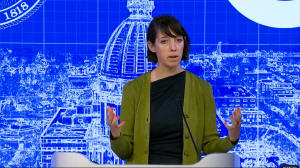|
“We are in a raging mental health crisis and in particular for
our youth,” LaPointe, D-Chicago, told The Center Square. “The
whole point of quick screeners is to just make sure that we're
making that the norm and we're destigmatizing it. At least once
a year, we’re having a brief screener to try to identify the
ways in which our youth are struggling earlier rather than way
later.”
Sponsored by LaPointe, Senate Bill 1560 seeks to require public
schools across the state to “offer age appropriate, confidential
mental health screenings” that ultimately steer students in need
toward the kind of support that could help. With early detection
deemed by experts as being critical, the veteran lawmaker
insists the screenings could start as early as third grade for
some students.
LaPointe argues young people growing up today face more
challenges than ever before as they seek to find balance in a
world that now extends well into the online universe.
“Social media is very challenging for our youth and I believe
that social media and very easy access to technology does
exacerbate our youth mental health crisis,” she said. “There's a
lot of online bullying; there's a lot of comparing yourselves to
other people. For youth and teens in particular, the social
media and technology and smartphones do exacerbate it.”
LaPointe stresses the screenings, which parents will have the
option of opting out of for their children, shouldn’t be viewed
as a panacea to what she sees as a growing problem.
“I would say universal mental health screenings in public
schools are one piece of the puzzle,” she said. “What I would
hope to see accomplished through this is an increased awareness
of mental health issues amongst our kids, most importantly
prevention and early identification so we can better connect you
to the support that they need earlier. Then we can really
prevent much larger problems in the future.”
Across the state, about 27% of public schools now conduct
universal screenings and another 40% do screenings on some
level.
SB 1560 passed the House by a 72-36 vote after having
unanimously passed in the Senate.
|
|




